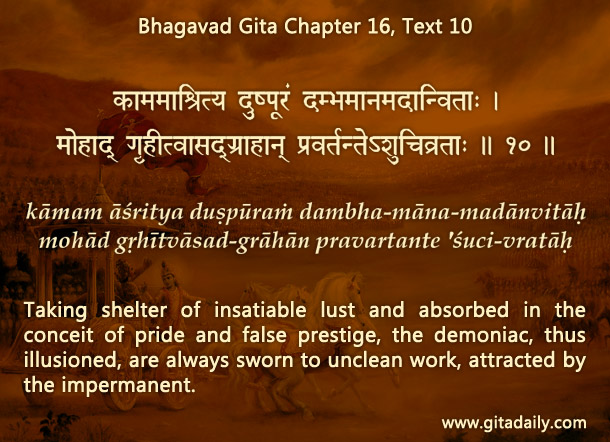Suppose a person climbs on a horse, but the horse goes wild, endangering the rider. Something similar happens to us when we climb on the horse of desire – the desire grows wild, jeopardizing our well-being. Thus, for example, people start drinking just to look cool, but over time, the desire to drink becomes addictive. It goads the person to drink, even against their intelligence and intention. Over time, it ruins the finances, dignity, relationships and even the life of the drinker. This is the great irony, tragedy and atrocity of desire: when indulged in unrestrictedly, it no longer pays heed to the desirer.
A question may arise: A horse is external to us, but our desire isn’t – so are the two comparable? Yes because most of our present desires are material, and these arise from our mind, which is external to us as souls.
We know intuitively that a horse can give pleasure and also cause disaster. But we need to consciously remember that desire too can act in both ways. Unfortunately, such remembrance is obstructed by today’s aggressively materialistic culture. It makes us indulge unthinkingly, not realizing that we are giving desire unwarranted and unhealthy power over us. Pertinently, the Bhagavad-gita (16.10) warns that desire that is insatiable binds us to degrading actions. In fact, what degrades us is our own desire-induced manic resolution to indulge wildly, unmindful of the consequences.
To counter the binding and degrading power of desire, Gita wisdom recommends that we spiritualize our desire by directing it towards Krishna. Bhakti-yoga purifies our heart, curbing our worldly desires and boosting our spiritual desires. Purification is thus like regulating and redirecting the horse of desire. Riding atop purified desire, we can canter away from dangerous material existence toward the safe zone of Krishna’s abode.
To know more about this verse, please click on the image
Explanation of article:
Podcast:


Only KRISHNA BHAKTI overtakes all desires